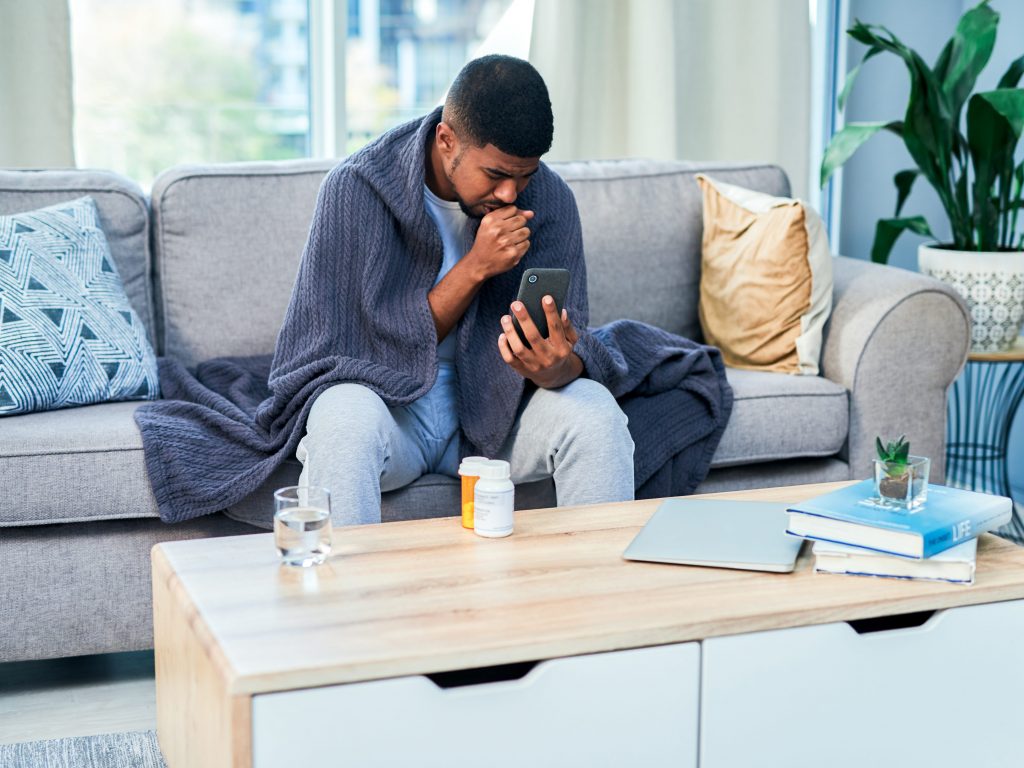- New technology could help detect COVID-19 from the cough of an infected person, researchers have said.
- The app uses machine-learning to analyze the sound of a person's cough.
- More trials are needed before the app can be used by patients.
Scientists have developed a smartphone app that they say can detect COVID-19 when an infected person coughs into their phone.
The app, created by Australian digital health company ResApp Health, uses machine learning to analyze the sound of a cough and identify when someone is infected with the virus.
The company, pending a green-light from regulators, plans to initially focus the app's use in places that require frequent testing, such as healthcare settings, workplaces, and entertainment venues. As well as cutting the number of tests, a smartphone-based test could improve security using biometric identification such as facial recognition, it added.
Dr Tony Keating, ResApp's CEO, said in a statement: "These algorithms offer a unique opportunity to provide a rule out screening test for COVID-19 at scale across the world, reducing the distribution challenge, the cost and the environmental impact of rapid antigen and PCR testing."
Pharmaceutical firm Pfizer on April 11 offered around A$100 million ($75 million) to buy ResApp Health, which has other apps in its portfolio that can detect respiratory illnesses.
In a trial of 741 people, the app correctly detected 92% of participants who were COVID-19 positive, ResApp said in a press release. A total of 446 people who took part in the trial – conducted in the US and India – were infected, it said.
"That's the big breakthrough that we've made over the last couple months," Keating told The Times on Monday. "We've been able to match coughs down to positive COVID-19 results. So we've found signatures in cough sounds that give us an indication of COVID," he said.
The company compared the results from the app with those from PCR lab tests. Lab tests aren't 100% accurate, but are the current "gold standard", which means they're the best indicator currently available.
The company didn't sequence the tests to determine which COVID-19 variant participants had contracted, but said the app "demonstrated consistent performance" during two periods — one when Delta was dominant, and another when Omicron was dominant.
The study hasn't yet been published or formally scrutinized by other experts in a peer-review.
Catherine Bennett, chair of epidemiology at Deakin University, Australia and a member of ResApp's COVID-19 Scientific Advisory Board said that she believes public health officials will welcome the "simplicity, ease of use and unlimited scalability" of the app.
"ResApp's COVID-19 test would significantly reduce the number of rapid antigen and PCR tests required, while still maintaining the disease surveillance needed to manage the continued impact of COVID-19," she said.
More trials are needed before the app can be used by patients. Regulators will need to assess whether the app is safe and effective, particularly dealing with the risk that people are falsely reassured they are free from the virus and inadvertently spread it; or the app falsely tells people that they're positive, which could have a huge impact on workforces, for example, especially if used on people without symptoms.
Keating said that the company intends to engage with regulators globally.
"We have already commenced discussions with global health and technology companies with the goal of rapidly bringing this product to market," he said.

